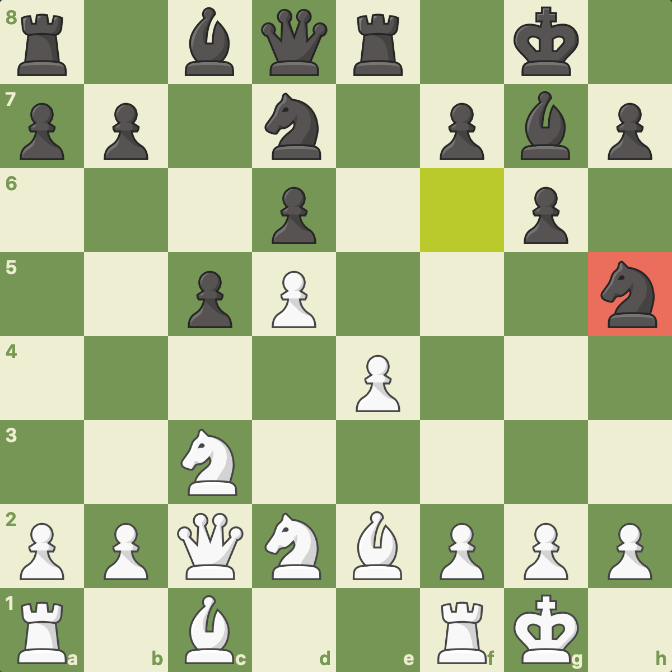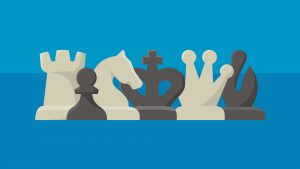
Novelty
Chess novelty is a term heard frequently in the chess world, but what does it mean? Is it a new opening? A new idea? Let's find out!
Here is what you need to know about chess novelties:
- What Is A Chess Novelty?
- Why Are Chess Novelties Important?
- How To Learn Openings On Chess.com
- Conclusion
What Is A Chess Novelty?
A chess novelty (also known as a theoretical novelty) is a new move or idea in the opening that was previously unknown to chess theory. In other words, a novelty is an opening move that hasn't been played before. A novelty can be a singular move or a series of moves. In chess literature and databases, a novelty is sometimes abbreviated to "N" or "TN" (for theoretical novelty).
You can easily mark a move as a novelty on Chess.com. Whether you are in an analysis board in Live Chess or analyzing your game in Chess.com/analysis, all you have to do is right-click on a move in the PGN or move field, and then select "N" from the options:

One famous example of a chess novelty is in game three of the GM Bobby Fischer vs. GM Boris Spassky 1972 World Championship Match. After following 10 moves of theory or book moves, Fisher uncorked a novelty with 11...Nh5:

This move had never been played before and was a shock to Spassky when he faced it over the board. Fischer went on to win this game, and many other strong players have since played his novelty. Here is the full game for your amusement:
Why Are Chess Novelties Important?
Chess novelties are important for many reasons. They can be used to surprise an opponent, forcing them to use precious clock time during a game. If you have heard the term "secret weapon" in chess, this can refer to novelties that a player found at home (or away from the board). For instance, players can find a novelty but never have the opportunity to play it in a game for years. When they get an opportunity to "uncork their novelty," it is often with a devastating effect (like in the Fischer-Spassky game above).
Chess novelties also move chess theory forward—without new moves and ideas, our beloved game could become stale and boring. Not all novelties are good moves, of course. Playing a new move for the sake of playing a novelty can have bad consequences, as book moves and theory exist for a reason! There is great difficulty in finding new ideas in well-known theoretical positions, as GM Serper discusses in this fantastic article.
One of the best ways to find novelties of your own is to learn the openings that you play. But how?
How To Learn Openings On Chess.com
Learning the theory for openings that you play is the first step to find novelties. Luckily, Chess.com makes learning openings fun and convenient. Aside from the many Lessons, Videos, and Articles on openings, there is also Chess.com/Openings:

Chess.com/Openings is a fantastic resource to learn your openings. You can look through over 3,000 opening lines and variations to find the best openings for you. Another great tool is Chess.com's Explorer, which lets you check out Chess.com's databases of master games. By reviewing game examples from openings that you are interested in, you can see great ideas in action!

Conclusion
You now know what novelties are, why they are important, how to learn openings on Chess.com, and more. Check out this great lesson on the Introduction to Book Openings to get started!







